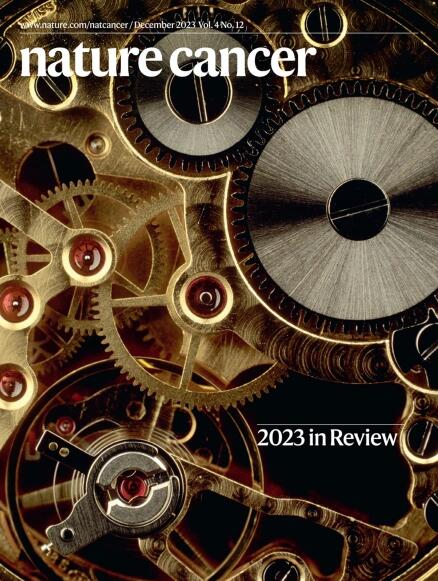spop突变前列腺癌中CHD1状态驱动不同的代谢途径。
IF 28.5
1区 医学
Q1 ONCOLOGY
引用次数: 0
摘要
CHD1缺失在spop突变型前列腺癌中很常见;然而,这种联合表型尚未明确定义。具有Chd1缺失和Spop突变的前列腺癌基因工程小鼠模型揭示了细胞内胆固醇和雄激素生物合成增强驱动的去势抵抗机制。本文章由计算机程序翻译,如有差异,请以英文原文为准。

CHD1 status drives divergent metabolic pathways in SPOP-mutant prostate cancer
CHD1 loss is common in SPOP-mutant prostate cancer; however, this combined phenotype has not yet been clearly defined. Genetically engineered mouse models of prostate cancer with Chd1 loss and Spop mutation now reveal a mechanism of castration resistance driven by enhanced intracellular cholesterol and androgen biosynthesis.
求助全文
通过发布文献求助,成功后即可免费获取论文全文。
去求助
来源期刊

Nature cancer
Medicine-Oncology
CiteScore
31.10
自引率
1.80%
发文量
129
期刊介绍:
Cancer is a devastating disease responsible for millions of deaths worldwide. However, many of these deaths could be prevented with improved prevention and treatment strategies. To achieve this, it is crucial to focus on accurate diagnosis, effective treatment methods, and understanding the socioeconomic factors that influence cancer rates.
Nature Cancer aims to serve as a unique platform for sharing the latest advancements in cancer research across various scientific fields, encompassing life sciences, physical sciences, applied sciences, and social sciences. The journal is particularly interested in fundamental research that enhances our understanding of tumor development and progression, as well as research that translates this knowledge into clinical applications through innovative diagnostic and therapeutic approaches. Additionally, Nature Cancer welcomes clinical studies that inform cancer diagnosis, treatment, and prevention, along with contributions exploring the societal impact of cancer on a global scale.
In addition to publishing original research, Nature Cancer will feature Comments, Reviews, News & Views, Features, and Correspondence that hold significant value for the diverse field of cancer research.
 求助内容:
求助内容: 应助结果提醒方式:
应助结果提醒方式:


